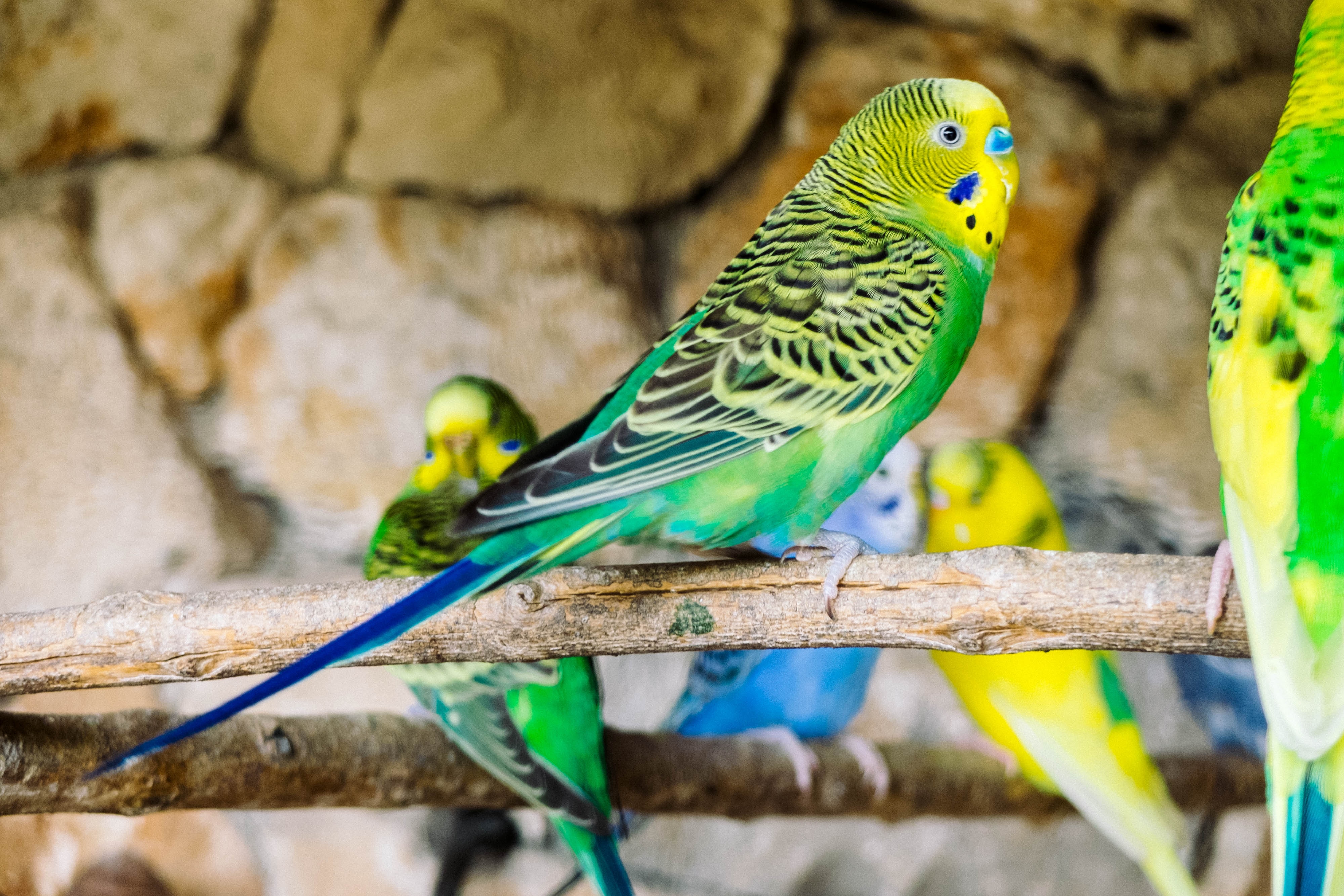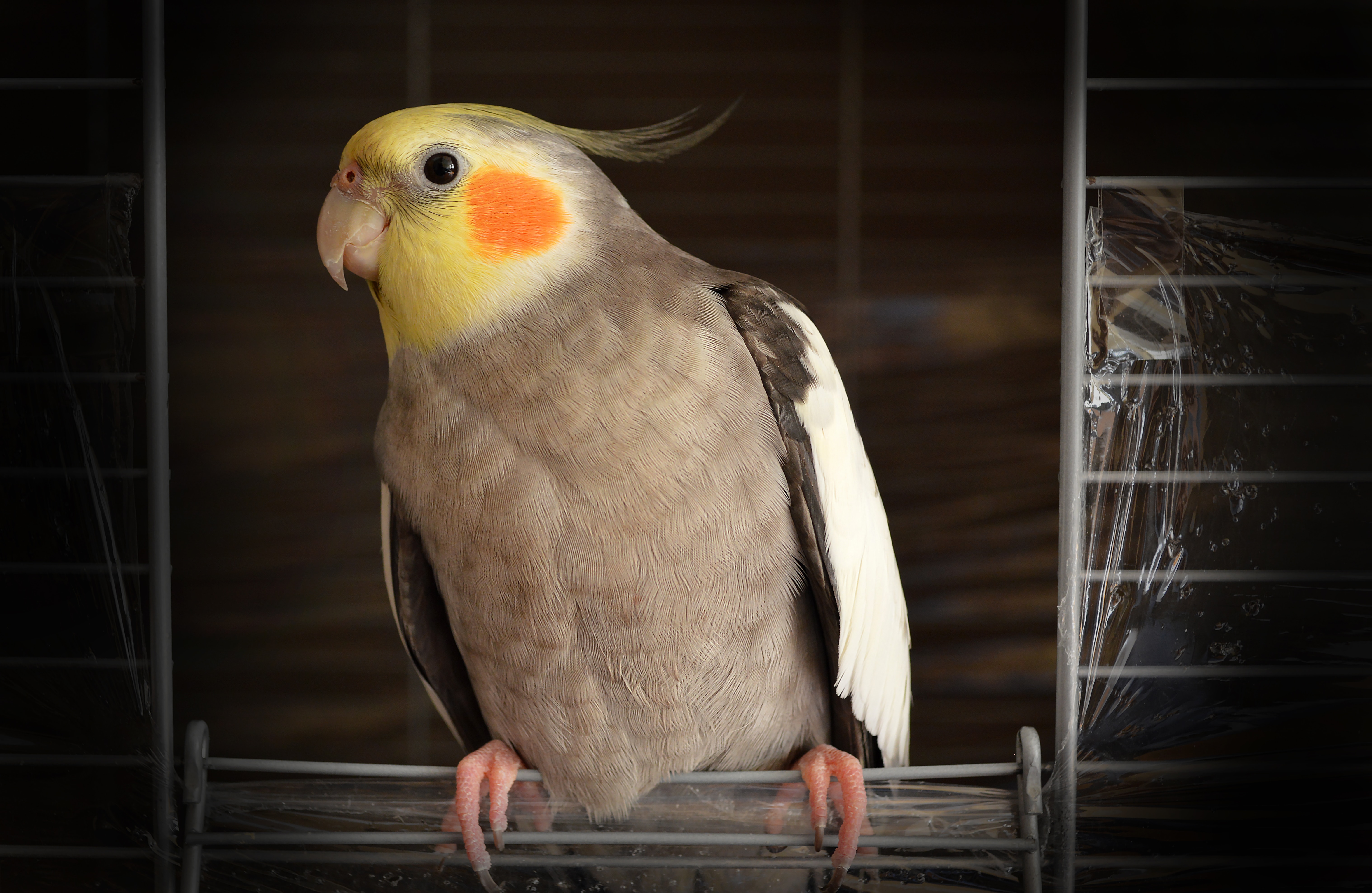
Are you a new bird owner? Or perhaps you’re thinking about buying a bird as a pet? If either of these apply or you’re simply curious about pet bird behavior, this guide is for you.
It’s fair to say that owning a pet bird is vastly different from caring for a cat, dog or many other common pets. Unfortunately, many people buy birds without understanding what to expect from them, what needs they have and how they can be met.
In this article, we’ll take a closer look at the behaviour of birds and explore why that may or may not make them an excellent pet you for. We’ll also discuss some of the common health concerns bird owners should be aware of.
Bird behaviours and the dos and don’ts of bird ownership
Birds are very intelligent animals
Although we understand relatively little about the brains of birds, we do know they are intelligent animals with a remarkable capacity to learn new things. For that reason, they can be incredibly rewarding pets for owners who are dedicated to spending time with them and creating an environment with plenty to stimulate their brains.
The downside of their intelligence is that exotic birds that don’t receive regular mental stimulation or spend much time with their owners can develop emotional problems and even form self-destructive behaviors.
Birds are extremely social
You might not think it, but the flock mentality of birds makes them very sociable animals. In fact, birds are more socially inclined than kittens. As far as science is aware, birds are the only animals on earth that are capable of mimicking human speech. Although not all birds can talk, they can still build incredibly close relationships with their owners.
The sociability of birds can make them hugely rewarding pets, but if you don’t have the time or inclination to interact with, train and have fun with your bird, those needs will not be met. The result can be an unhappy and even aggressive bird.
Birds are relatively easy to care for
Compared to cats and dogs, birds can be quite easy to look after. They don’t need walking when it’s pouring down with rain and many people find cleaning their cage more appealing than constantly scooping litter and picking up after a dog.
However, that doesn’t mean a bird can be put in its cage and left. Some birds can be very vocal, which means even when they’re out of sight, they’re not easily forgotten. Birds are also extremely messy eaters, so the area under and around your bird’s cage will require regular cleaning.
Birds will also still need some degree of exercise and freedom. With some cages and cage shapes being too small or harmful to a bird’s mental health, it’s worth considering whether or not you’re ready to have your bird roaming about the house more often than they’re in their cage. And one step beyond that, whether or not your house is a safe space for your bird as it flies around.
Birds don’t need to be groomed
When they’re happy and healthy, birds do an excellent job of preening themselves. This behaviour keeps their feathers neat and shiny. All you have to do is provide fresh, tepid water every day so your feathered friend can have a bath. You must also trim your bird’s nails and beak regularly or get it done professionally. We’d recommend professionally for most owners, as similar to cats and dogs, poorly skills with pet maintenance could injure or irritate your pets.
When they’re let out of the cage, many birds will also preen their owners. However, they’re not always as gentle as your local hair stylist might be, so it’s usually a behavior to avoid.
Birds love to play
Birds are always on the lookout for something to do, so you should ensure they have plenty of toys to keep them entertained. Soft rope toys, coat hanger climbing frames, swings and even cardboard boxes all make excellent bird toys.
Unlike cats and dogs that can roam, pet birds are stuck with the toys in their cages, so you should change them on a regular basis. Again, make sure your bird’s cage has plenty of space for them to move around, and if possible (provided a safe house environment) have the option for your bird to come and go from their cage while you’re home and able to supervise and maintain safety.
Birds can be kept in a relatively small space
Smaller bird species such as canaries, budgies and finches don’t need a huge amount of space, which can make them an attractive pet for those who live in apartments or don’t have a garden.
However, there are still a few things to consider. When birds are scared, they naturally want to retreat to a corner of the cage. That makes rectangular cages preferable to round cages. If you have a round cage, a nesting box can be used to create a safe space. If your bird spends much of its time in the cage, you should buy the largest cage you can afford so it has plenty of room to fly around and exercise.
It’s also worth noting that some studies have shown round cages to be a negative influence on a bird’s overall health. Consider finding the largest, not rounded cage you can for your living space and budget if you plan to keep a bird as a pet.
Physical and medical concerns for bird owners

There are also some common health problems, ailments and physical behaviours bird owners should be aware of. Generally, when a bird becomes ill, its health can deteriorate very quickly, so it’s important you know what to look out for.
- Plucking and chewing of feathers – A bird that plucks and chews its feathers could have any number of issues that need to be addressed. It can stem from medical or behavioural issues such as poor nutrition, respiratory infections and anxiety. If your bird exhibits this type of behaviour, it needs a full medical evaluation.
- Avian illness – If you know your bird well, you may be able to notice the tell-tale symptoms that everything’s not quite right. That includes sleeping too much, discharge from the nostrils, a change in demeanour, tail bobbing, clicking from the beak, vomiting and a lack of preening.
- Injuries – Birds that are hurt can hide their injuries very well. However, the common signs of an eye injury, leg injury, bleeding or a change in attitude should all be relatively easy to spot if you’re observant. If you think your bird is injured, take it to an avian vet immediately or put it in a ‘hospital cage’ until you can.
- Interaction with other pets – Cats, dogs and birds can all live harmoniously in some instances, while in others, cats particularly, will pounce on and kill pet birds if they’re given the chance. Cat and dog saliva can also be extremely hazardous to your bird and even friendly play could be fatal. That’s why you should always be careful when mixing birds with other pets.
Complete care for pets of every size
At BCP Veterinary Pharmacy, we supply veterinarians and pet owners with the medication to care for all animals, no matter how big or small. Take a look at our products and place your order online.


